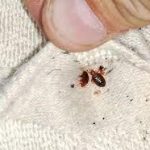Being a disorder whose genesis is strongly influenced by lifestyle, diet for gastritis. It can calm or completely resolved by applying some variations in eating habits. It is not always possible to keep an inflammation of the stomach at bay by following a proper diet.
Tips for choosing the right diet for gastritis

The severity and duration of symptoms should always be considered on an individual basis. Measuring the need for recourse to the family doctor and possibly for specialist visits and diagnostic tests to identify the cause of the disorder, such as the presence of Helicobacter infection pylori.
What is certain is that those suffering from stomach disorders such as gastritis must pay the utmost attention to the diet. Choosing foods according to their preferences but also to the reactions that they cause.
Each of us has a unique ability to digest and assimilate different foodstuffs. Often the presence of food intolerance is completely ignored. In any case, it is possible to draw up a diet for gastritis useful to most people.
Foods to avoid

In case of gastritis the stomach mucosa is in a sore or inflamed state. So, it is very important to avoid foods that could cause further stress.
These dietary indications are valid both for sporadic and milder forms of gastritis. And for the more severe and chronic forms.
In the first case a complete remission of the symptoms is already possible, while in the second it is also necessary pharmacological therapies. Such as those based on antibiotics against Helicobacter pylori or drugs able to regulate gastric motility. It however must always be prescribed by the doctor.
A general rule is not to make excessive meals and to divide them during the day: This helps to keep the gastric acid within optimal limits.
It is essential to avoid, especially in the acute phase of gastritis:
- All high- fat foods that could increase stomach acid secretion (such as red meat, fatty or conserved fish and fat cheeses, especially fermented ones).
- All particularly spicy condiments containing, for example, black and white pepper, garlic and chili pepper.
- Pay particular attention to sour fruit such as lemons, mandarins, oranges, and to dried fruit, the latter too rich in fats and proteins.
- Limit consumption of refined foods such as pasta, white bread and crackers.
- Eliminate foods that produce gas like broccoli, cabbage, onions, milk, dried beans and peas, and some fruits.
The Best Make 6 recommend drinks You Will Read This Year (in 2017)
Alcohol and caffeine on the dock
Avoid all drinks that can irritate the mucosa of the stomach or increase the production of gastric acid. Among these it is obvious to mention alcohol and especially spirits, which completely eliminate from the diet.
The same goes for coffee, even decaffeinated coffee, and for all caffeinated drinks. Avoid drinking iced or too cold drinks, especially on an empty stomach.
It is advisable to regularly drink water during the day, especially in the most serious cases where vomiting and diarrhea are present (with a related problem of dehydration).
Milk has an immediate beneficial effect, but after initial relief, it can cause a rapid reappearance of symptoms. This is because, due to its alkaline character, it contrasts acidity at the moment, but being a food rich in fats and proteins, at a later time it increases and slows the emptying of the stomach.
Avoid Too much sweetened drinks and those derived from sour fruits.
Here’s what to bring to the table
- Light and low-fat foods (white meats, lean fish, lean and fresh cheeses). Avoid consuming different protein sources in the same meal, such as eggs and meat or legumes or cheeses.
- Simple and unprocessed dishes favoring boiling, sautéing with extra virgin olive oil or grilling.
- Foods rich in fiber. They do not cause an increase in gastric acidity, therefore all fibrous vegetables (green beans, artichokes, celery, lettuce, cabbage, nettles etc.) are advisable. On the contrary, don’t use tomatoes due to their acidulous nature.
- Foods containing flavonoids, such as apples, celery and blueberries because they can inhibit the growth of Helicobacter pylori.
- Foods rich in antioxidants, especially fruits like blueberries, cherries, etc. and vegetables.
- High foods with B vitamins and rich in calcium, such as almonds, beans, leafy vegetables (such as spinach) and sea vegetables.
As far as drinks are concerned, non-acid fruit juices are recommended. Also add low-fat and skimmed milk and yoghurt to drink. As well as, obviously, a good quantity of water in the diet for gastritis.










